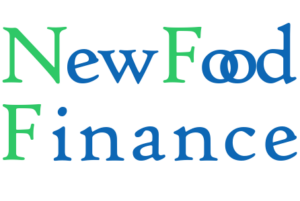Mapping Arable Farming Chemical Alternatives
Graphic of the Week: Mapping Arable Farming Chemical Alternatives

Welcome to the New Food Finance weekly newsletter, where we report on a green transition in food and ag, highlighting the growth opportunity from tougher environmental regulation and shifting consumer choices.
This week, our newsletter is a day later than usual, after we attended LAMMA 2025, one of Europe’s biggest ag machinery and tech shows.
Adhering to our “green transition” theme, as ever, we found that:
Digital greentech is now deeply embedded in agriculture, deployed and ready for sale
The large equipment manufacturers are routinely applying precision tech such as variable rate drilling and spraying
However, in some cases, there is still a price premium, which is more visible than potential lifetime cost savings
Some greentech suppliers are keen to flaunt environmental subsidies, which in reality may be fickle and not to be depended on!
As we paced the giant halls at Birmingham’s cavernous NEC exhibition centre, in the UK, we found five ways in which farm machinery is going digital:
Precision navigation: it is now routine for modern tractors to have GPS and/ or RTK-enabled autosteering and other digitally-supported navigation, to waste less seed, product and fuel. Multiple companies provide these services as add-ons, to retrofit older or simpler machinery, such as PTx Trimble, and on a smaller scale, Field Bee and Agricision.
Precision application: at New Food Finance, we recently dug deep into the payback periods for real-time, green-on-green, computer vision-enabled spot sprayers. Carbon Bee is one of these companies, and on display at LAMMA 2025, with UK-based supplier RVT quoting a £60k ($73k) retrofit cost, with the potential for UK per hectare and upfront capital cost subsidies, and crop applications including wheat and barley.
Sensor analytics: one of the biggest agtech trends over the past decade has been the use of remote, drone and in-field sensor data, to drive insights for variable rate applications of chemicals and fertilisers. One company that maps such data, on display at LAMMA 2025, is SOYL, a part of UK commodities giant Frontier. In a New Food Finance survey of six driller manufacturers, at the trade fair, all said they enabled use of variable rate maps, via ISOBUS, a standard protocol that allows tractors and other agricultural machinery to communicate with each other.
Data platforms: multiple companies provide farmers and agronomists with online platforms and dashboards to aggregate third party data via API, from digital mapping to farm management data, with Ag Leader and Hutchinsons examples of these.
Electric Vehicles: electric tractors are coming, with battery capacity remaining an issue given the power requirement of farm machinery. In the meantime, smaller, all terrain vehicles (ATVs), a must-have for farm mobility, are converting to electric from diesel. Polaris quoted a £6k ($7.3k) premium for an electric ATV comparable to an £18k diesel model.
New Food Finance: Sign up for a 3-day free trial
“Green Transition” Deals of the Week
In our “Green Transition” space last week, we saw five fundraisings, worth $159 million, and one M&A deal.
United States, January 16 – smaXtec has developed an ingested sensor for livestock to monitor inner body temperature, drinking behavior, and rumen pH, for early disease detection and feed optimization. The company raised undisclosed private equity funding from Highland Europe and KKR.
United States, January 16 – Switch Bioworks engineers microbes as biostimulants to fix nitrogen in plant roots. Farmers apply the rehydrated bacteria, which activate nitrogen fixation for germinating plants. The company secured $2 million in grants from the U.S. Department of Energy’s ARPA-E programme.
United States, January 16 – Robigo develops precision-engineered microbes to protect crops from disease. The company raised pre-venture capital funding from SVG Ventures-THRIVE.
Slovenia, January 15 – Narayan Foods produces vegan and organic plant-based products, including coconut oil, protein powders, and honey, sold under private labels and for its own brand. Edible Garden acquired the company in an M&A deal.
United States, January 15 – CH4Global markets Methane Tamer™, a seaweed-based feed additive to reduce cattle methane emissions by up to 90%, and improve feed efficiency. The company raised undisclosed venture capital from Chipotle Mexican Grill.
Germany, January 14 – Formo uses precision fermentation to create dairy substitutes by encoding yeast with dairy protein DNA sequences, and then producing cheese using traditional methods. The company raised $36 million in “venture debt” from the European Investment Bank.
India, January 14 – Moonrider.ai has launched a range of electric tractors, designed to lower farmers’ operational costs while maintaining productivity. The company raised $2.2 million in pre-venture capital funding from Micelio Technology Fund and AdvantEdge.
Netherlands, January 14 – Aurea Imaging offers crop intelligence for fruit growers and breeders, combining deep learning, sensors, and agronomy for tree-level orchard management. Its tractor-mounted TMS TreeScout sensor replaces drones for data collection. Hiphen has acquired Aurea’s phenotyping business, in an asset divestment deal.
France, January 14 – Sencrop provides weather stations connected to an app for precision data on rainfall, temperature, humidity, and wind speed, aiding irrigation and pest management. The company has been acquired by ISAGRI.
United States, January 14 – Biosphere is developing UV sterilize-in-place bioreactors, which it says eliminates the need for complex steam sterilisation systems. The company has raised $8.8 million from Lowercarbon Capital, VXI Capital, Founders Fund, and others.
New Food Finance Resources
Our Deep-Dive Briefings each give the low-down on an emerging technology up-ending food production:
December 10: Cutting Methane Emissions – Are Feed Supplements the Answer
November 27: Cultivated Meat Optimisation and Innovation
November 13: Bacteriophages in green agriculture
October 30: Sustainable Animal Feed Additives
October 15: Proteins as Biological pesticides
